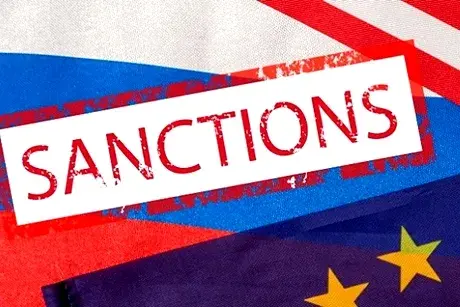Sanctions on Russia: Imperfect But Necessary

The following Op-Ed was published in the print edition of the Providence Journal, Monday, Feb. 28, 2022, p. 11A
~~~~~~~~~~
 All too often, history repeats itself. Russia’s invasion of Ukraine is a perfect example. President Vladimir Putin clearly wants to create a buffer zone of security between Russia and Europe, not unlike during the Cold War, and he is willing to create an international crisis to get it. The West’s information counter-offensive has called out Russia’s behavior and false statements but ultimately has not averted the crisis.
All too often, history repeats itself. Russia’s invasion of Ukraine is a perfect example. President Vladimir Putin clearly wants to create a buffer zone of security between Russia and Europe, not unlike during the Cold War, and he is willing to create an international crisis to get it. The West’s information counter-offensive has called out Russia’s behavior and false statements but ultimately has not averted the crisis.
Sending NATO or U.S. troops to Ukraine is currently out of the question: Ukraine is not a NATO member, and sending direct military assistance risks all-out war beyond the borders of Ukraine. As a result, international trade sanctions are the response of choice.
I have worked in international trade and national security law for nearly three decades, as both a practicing lawyer and law professor, and I have studied many trade sanctions programs. So I can say with authority that trade sanctions are not as effective as we would wish. While they often have laudable goals, they usually achieve questionable results and have undesirable consequences. Yet they may be the only tool immediately available in this crisis.
The dubious track record of trade sanctions raises an important question: why are they used? One reason is that they are easy to implement. They are politically expedient and highly visible, and they impose few immediate costs on the implementing country. In the U.S., trade sanctions are usually issued via presidential executive orders—literally with the stroke of a pen.
That is what happened here. President Biden signed an executive order prohibiting U.S. persons and companies from engaging in new investment, trade, or financing with the regions of Ukraine that Russia claims are independent. President Biden also has imposed sanctions against Russian financial institutions, as well as against certain Russian elites. Persons and entities named in these executive orders have had their U.S. financial assets frozen, and U.S. persons and companies are prohibited from doing business with them. The U.S. and its NATO allies are implementing multilateral sanctions as well.
In a sense, this response sounds sweeping and decisive. But how effective will it be? So far, not very. And where might Russia turn for assistance? The answer is many places, and most notably China. Moreover, multilateral sanctions are often imperfect, because broad coalitions are difficult to maintain.
We live in an interconnected global economy, and it is hard to block all trade and investment with another country. It might have been more possible at the height of the Cold War, when the U.S. could simply turn off the spigot of international trade and investment. But now there are multiple spigots, many of which the U.S. does not control. U.S. trade sanctions will impede Russia but not stop it. Plus, Russia has built up significant financial reserves, presumably in anticipation of a move like this, and this mutes the immediate impact of sanctions.
Another problem with trade sanctions—especially prolonged sanctions—is that they exact huge collateral tolls on innocent people. I have seen this happen over and over again, and there is only so much that humanitarian relief (such as blocking investment but letting medical supplies through) can do to reduce this harm.
I am not saying that sanctions are not appropriate here; they are. They are better right now than direct military response. They are better than doing nothing. They send clear signals of disapproval. And there is no other viable option for swift response. Perhaps a sustained show of resolve and opposition by the West, combined with military opposition by Ukraine, will hinder Russia’s aggression somewhat. Or perhaps not. Either way, trade sanctions, despite their limits, are the best hand for the U.S. and its allies to play right now.
~~~~~~~~~~
RWU Law Dean Gregory W. Bowman spent nearly ten years practicing international trade law with two large law firms having strong international practice groups. He was involved in significant work with trade sanctions and export controls against various (a) countries (Cuba, North Korea, Myanmar, Iran, and Iraq, to name a few); (b) groups (terrorist organizations, narcotics cartels, money laundering organizations, and more); and (c) individuals (members of those organizations and representatives and nationals of sanctioned countries).
"It was fascinating and exciting work—complex, technical, policy-oriented, and nuanced," Bowman notes. "And during my time in practice I saw a lot of trade sanction programs that, despite laudable goals, had questionable results and undesirable consequences."
To access the digital flipbook edition of the Providence Journal, use RWU Law library access or direct access.
